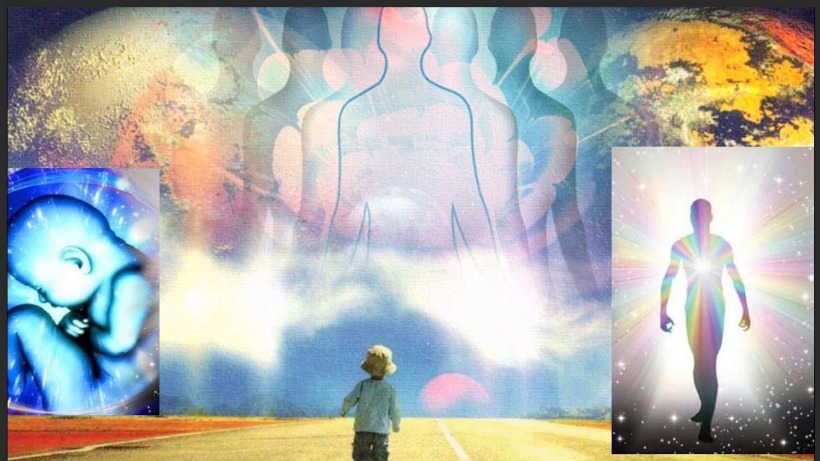
Do the things that happened in our past lives decide what will happen to us in this life? Let’s explore the idea that what happens to us now is connected to what we did in our past lives, according to karma philosophy.
Certainly! The concepts of karma and reincarnation are fundamental tenets in Hindu philosophy, shaping ethical behavior, spiritual evolution, and the understanding of the human experience. Let’s delve deeper into each concept and explore their significance across different Hindu philosophical schools.
Here’s a simplified explanation of karma and reincarnation in Hindu thought:

Karma:
What is Karma?
Karma is like a system of rewards and consequences for our actions. It means that the things we do—good or bad—have an impact on what happens to us later.
Karma, derived from the Sanskrit word meaning “action” or “deed,” refers to the law of cause and effect governing moral actions and their consequences. According to this concept, every action, whether mental, verbal, or physical, generates a corresponding energy that influences the individual’s future experiences.
Interpretations: Various Hindu philosophical schools offer nuanced interpretations of karma:
Nyaya-Vaisheshika: Emphasizes the precise cause-and-effect relationship, viewing karma as the accumulation of merit (punya) or demerit (papa) based on one’s actions.
Samkhya: Considers karma as the driving force behind the cycle of birth and death (Samsara), influencing the soul’s journey through various life forms.
Vedanta: Explores karma in the context of Advaita (non-dual) Vedanta, where actions are seen as a product of ignorance (avidya) and liberation (moksha) is achieved through self-realization and transcendence of karma.
Karma Yoga: Advocates selfless action performed without attachment to the results, emphasizing the purification of the mind and liberation from the cycle of karma.
How Does it Work?
If we do good things, good things are likely to happen to us in the future. But if we do bad things, we might face challenges or difficulties down the line.
Why Does it Matter?
Knowing about karma encourages us to be kind, helpful, and responsible in our actions. It teaches us to think about the effects of what we do and to try to make the world a better place.
Reincarnation (Samsara):

What is Reincarnation?
Reincarnation is the idea that after we die, our soul is reborn into a new body. It’s like getting another chance to live, learn, and grow.
lets talk about it deeply…
Reincarnation, or Samsara, is the cycle of birth, death, and rebirth experienced by the soul (Atman). According to Hindu belief, the soul undergoes multiple incarnations, each influenced by past karma, until it achieves spiritual liberation (Moksha).
Interpretations: Different Hindu philosophical schools offer distinct perspectives on reincarnation:
Advaita Vedanta: Views reincarnation as an illusory cycle experienced due to ignorance (avidya), with liberation attained through self-realization of one’s true nature as identical to Brahman, the ultimate reality.
Dvaita Vedanta: Asserts the existence of individual souls (Jivas) distinct from Brahman, with reincarnation serving as a means for souls to progress spiritually and ultimately reunite with God.
Buddhism: Although not strictly within the Hindu tradition, Buddhism shares the concept of Samsara but interprets it differently, emphasizing impermanence (Anicca) and the cessation of suffering (Nirvana) through enlightenment (Bodhi).
How Does it Work?
According to this belief, we go through many lifetimes, each influenced by our past actions (karma). We keep coming back until we learn important lessons and reach spiritual fulfillment.
Why Does it Matter?
Understanding reincarnation reminds us that life is a journey of learning and growth. It encourages us to make good choices and be our best selves, knowing that our actions shape our future.
Impact on Life:

Impact of Karma: The understanding of karma influences ethical behavior by emphasizing the importance of righteous conduct, compassion, and moral responsibility in shaping one’s destiny.
Karmic Consequences: The belief in karma motivates individuals to act virtuously, knowing that their actions will have consequences, both in this life and in future incarnations.
Spiritual Growth: Reincarnation provides a framework for understanding the soul’s evolution over multiple lifetimes, offering opportunities for spiritual growth, learning, and karmic purification.
In short
- Being Good Matters: Karma teaches us to be kind and responsible because our actions affect what happens to us.
- Life is a Journey: Reincarnation shows us that life is like a big adventure, with many lessons to learn along the way.
- We Can Improve: Both concepts give us hope that we can improve ourselves and make the world a better place, one action at a time.
In summary, karma and reincarnation are central concepts in Hindu philosophy, offering insights into the nature of existence, ethical conduct, and spiritual evolution. The interpretations of these concepts vary across different philosophical schools, reflecting diverse perspectives on the human condition and the ultimate goal of liberation from the cycle of birth and death.
In simple terms, karma and reincarnation are like a set of rules and a big journey that teach us to be good, learn from our experiences, and strive to become better people.

